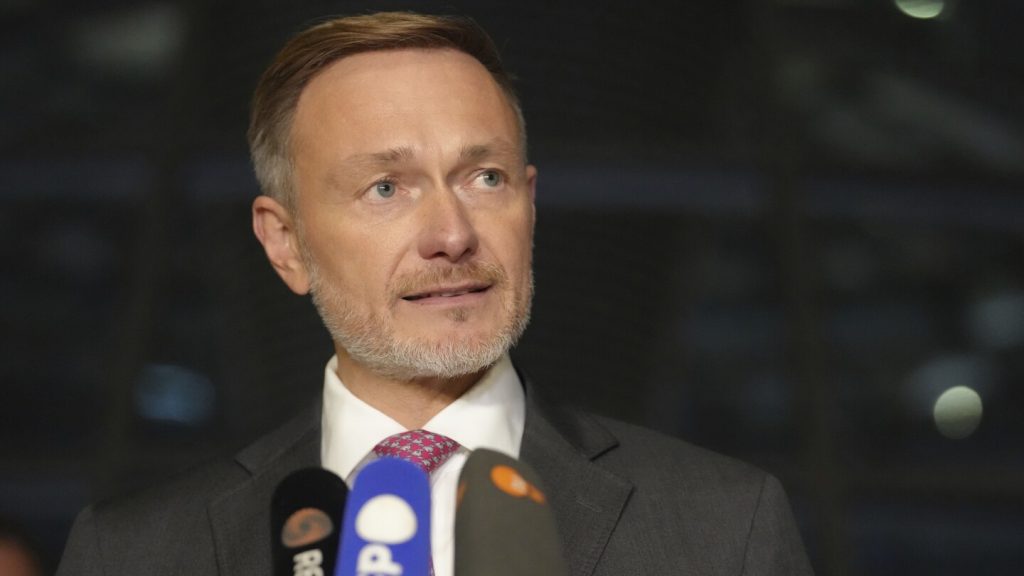Germany’s center-left Chancellor Olaf Scholz announced the firing of Finance Minister Christian Lindner on Wednesday, leading to the collapse of the ruling three-party coalition that relied on Lindner’s pro-business party. The decision was made following weeks of disputes among the coalition partners over economic policies to revive the country’s struggling economy. Scholz stated that he would seek a vote of confidence in January, potentially leading to early elections that were otherwise due in September. Lindner, from the Free Democrats, rejected tax increases and changes to Germany’s debt limits, while Scholz and the Greens advocated for state investment and opposed welfare cuts.
In response to his dismissal, Lindner accused Scholz of failing to recognize the need for a new economic strategy in Germany and downplaying the economic concerns of citizens. He criticized the chancellor’s proposals as dull and unambitious, lacking in substance to address the country’s growth challenges. Scholz, on the other hand, cited Lindner’s lack of trustworthiness and unilateral actions in budget negotiations as grounds for his dismissal. He accused Lindner of advocating for tax cuts for top earners while proposing pension cuts for all pensioners, which he deemed unacceptable.
Scholz announced plans to seek a vote of confidence in Germany’s parliament on January 15, allowing members of the Bundestag to decide on the possibility of early elections. The chancellor stated that the election could take place by the end of March at the latest, in compliance with constitutional deadlines. Germany’s economy is projected to contract for the second consecutive year in 2024, facing challenges from external shocks and domestic issues such as bureaucratic hurdles and a shortage of skilled labor. The coalition government, formed in 2021, has faced criticism for its perceived dysfunction despite some achievements in energy security and social reforms.
Ahead of the vote of confidence, Scholz expressed his intention to engage with opposition leader Friedrich Merz of the Christian Democrats to discuss ways to strengthen the economy and defense. He emphasized the importance of working together on crucial national issues and quickly bolstering key sectors. The government’s efforts to bridge ideological gaps and implement progressive policies have faced significant challenges, leading to the current political turmoil and potential early elections. The outcome of the vote of confidence in January will determine the future direction of Germany’s government and economic policies.
Despite the achievements of the coalition government, including managing energy supply disruptions and initiating military modernization, the prevailing narrative in Germany is one of deepening dysfunction and lack of effective governance. The decision to dismiss Lindner and potentially call for early elections reflects the growing tensions and disagreements within the ruling coalition, highlighting the need for a stable and cohesive leadership to address the country’s economic challenges. As Germany navigates through this period of uncertainty, the focus remains on finding solutions to revive the economy and restore confidence in the government’s ability to make tough decisions for the benefit of the nation.















